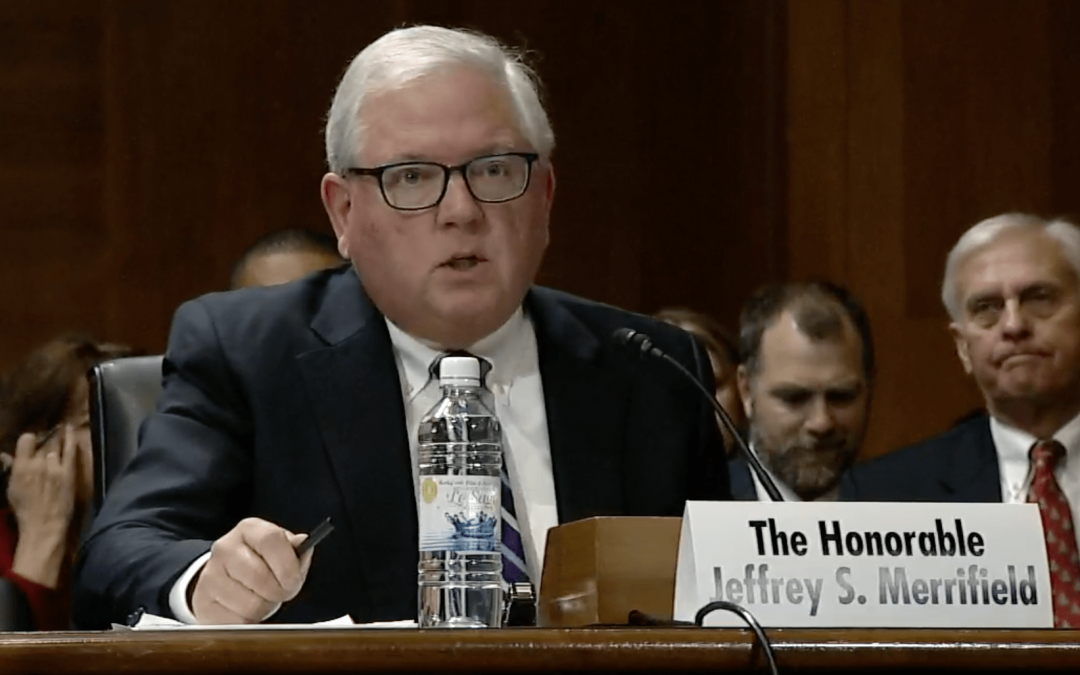WASHINGTON– Despite bipartisan congressional support for small scale nuclear reactors, United States nuclear projects have failed to get off the ground.
High costs and risks of building these reactors prevented utility companies from completing scheduled projects, such as one to build the first U.S. small nuclear reactor in Idaho, which was recently canceled. Only one older-style nuclear reactor had been built over the last three decades, a pressurized water reactor in Georgia that finished construction earlier this summer.
Experts testified to the Senate Energy and Natural Resources committee last week about obstacles faced by newer nuclear technologies that deter utility companies.
“Utility CEOs fear that if they commit to building a first-of-a-kind plant, it could have financial and timing risks on the backend of the project,” said Jeffrey Merrifield, vice chair of the U.S. Nuclear Industry Council.
The projects also have been stymied by cumbersome application and certification processes for a license, Merrifield said. The U.S. Nuclear Regulatory Commission certified NuScale’s small modular reactor design for the Idaho project earlier this year, making it the first company and first reactor of its kind certified for production in the United States.
“Congress directed the NRC to put together a risk-informed, performance-based program for licensing advanced reactors,” Merrifield said. “What the NRC staff has come up with has layered additional complications on those designs that are non-existent in the old licensing processes they used.”
Members of the Senate Energy and Natural Resources committee agreed that permit processes should be streamlined to speed up nuclear energy production, a goal that has received bipartisan congressional support and funding.
“We need to ensure that we got a licensing, permitting process that allows for greater levels of efficiency to catch up with the enthusiasm and the interest level,” said Sen. Lisa Murkowski, R-Alaska.
Director of the Idaho National Laboratory John Wagner emphasized in a written testimony the importance of nuclear energy to meet President Biden’s goal of zero carbon emissions by 2050.
“To meet our nation’s clean energy goals, we need to expand our nuclear energy capacity. And we need to do it quickly,” Wagner said. A Department of Energy report “concluded that waiting until the mid-2030s to deploy advanced nuclear technologies at scale could lead to our nation missing decarbonization targets.”
Despite concerns for climate change, many environmental groups have long opposed nuclear. Natural Resources Defense Council said financial challenges and environmental risks, like nuclear mining and waste disposal, must be addressed through policy before the U.S. prioritizes nuclear projects over other types of green energy.
“Reinforcing this perspective, nuclear power is uneconomical compared to alternate forms of low-carbon electricity generation—even without considering those risks,” NRDC expert Matthew McKinzie wrote in a nuclear analysis. “Faced today with the seemingly irreversible decline of nuclear energy in the United States, and the enormous potential to scale up energy efficiency and renewable energy on a stronger electric grid, NRDC’s analysis concludes we can meet our U.S. climate goals even with a much-reduced nuclear fleet.”
While advanced nuclear projects have failed to take off in the U.S., China began construction of the first small modular reactor in the world in 2021. Senators expressed fear that China will outcompete the U.S. on new nuclear reactors the same way it has on solar panels.
“The U.S. has long been a leader in civil nuclear energy, which has allowed us to share our expertise and gold standards for safety and non-proliferation around the world,” said Chairman Sen. Joe Manchin, D-W.V. “Over time, Russia and China have made a concerted effort to supplant our nuclear leadership. We must push back.”

